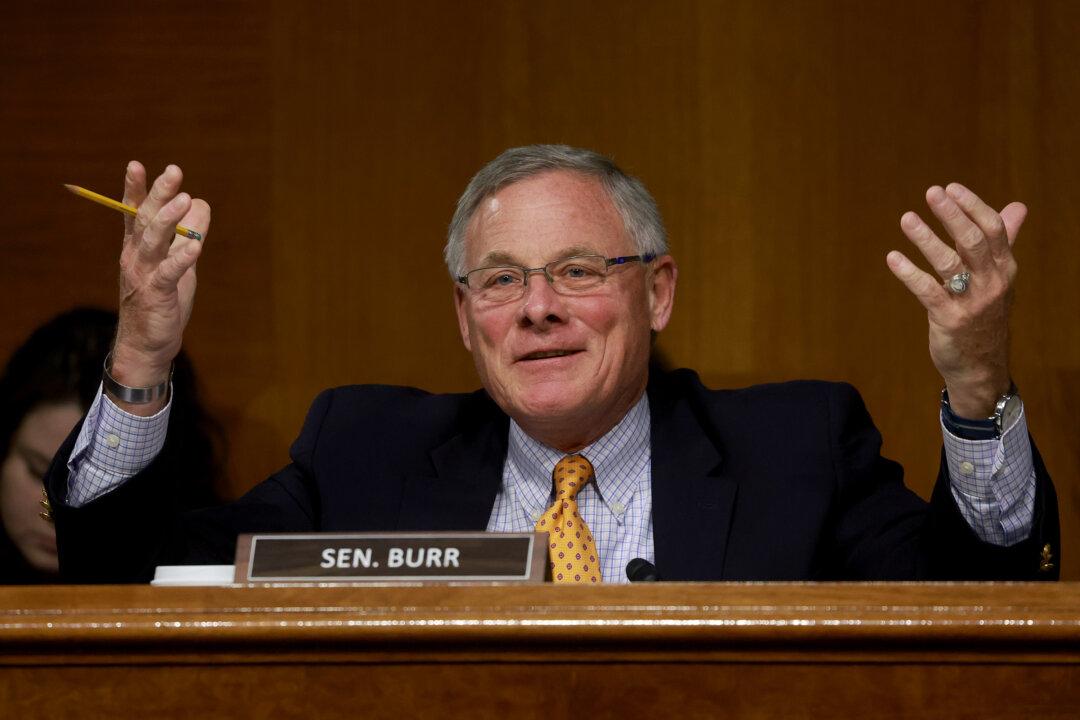The U.S. Securities and Exchanges Commission (SEC) has ended its more than two-year probe of stock trades made by then-Sen. Richard Burr (R-N.C.) while in office in 2020, taking no action against the now-retired lawmaker.
Burr announced the closure of the probe on Jan. 6 in a statement he shared with CNN.





